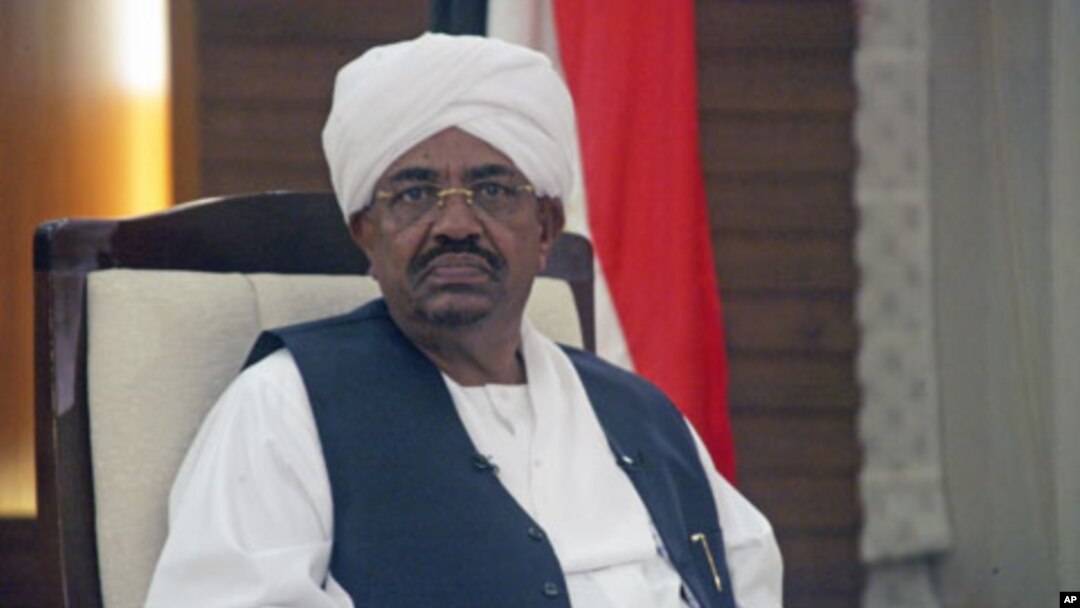Sudan and South Sudan have resumed talks on sharing oil revenues that are a key component of both countries' economies. South Sudan shut down production at its oil fields last month, after accusing the Khartoum government of stealing crude that passed through northern pipelines. The talks began in a somber atmosphere.
A member of the South Sudan negotiating team told VOA on Monday the pipeline would remain closed until Sudan accepts southern demands in the two countries' bitter dispute over oil payments. The negotiator spoke on condition of anonymity.
As day three of the six-day session of talks dragged on, the solemn faces of negotiators told the story as they emerged from meetings.
The tone of rhetoric coming from Khartoum and Juba suggests the two sides are far apart. Sudan has accused the South of having a negative attitude toward the talks. Southern officials are holding fast to a series of demands, including payment for $850 million worth of oil they say the north stole from the pipeline.
Sudanese news agencies quoted President Omar al-Bashir as saying the south's decision last month to suspend oil production is “suicidal." Several analysts have said the same thing, noting the Juba government depends on oil for 97 percent of its income.
But southern officials reject what they call the “prophets of doom."
The south's acting defense minister, Majak D'Agot, calls the cutoff a “blessing in disguise."
"Despite the hardship and the consequences, it's a blessing in disguise in the sense [South] Sudan has consummated its independence because it is fully assuming control of its natural resources, it's assuming control of its territory, and assuming control of this critical and strategic resource: oil," said D'Agot.
D'Agot says the south is much better able to withstand the oil cutoff than the north. He told VOA the Khartoum government is suffering much more because the north is more oil-dependent than the impoverished south.
"[The] Sudanese economy is fast industrializing. It was much dependent on oil and the need for oil in north Sudan cuts across all sectors of the economy, whereas in South Sudan we know this is an economy trying to emerge out of distress as a result of war and underdevelopment. It is more or less a subsistence-based economy, so the effect of oil or lack of it has not yet been felt by the majority of people in South Sudan," said D'Agot.
The talks are being held under the auspices of the African Union mediating team led by former South African president Thabo Mbeki. The Mbeki panel succeeded in persuading the two sides to sign a non-aggression deal Friday on the first day of the meetings.
But D'Agot, who led his side in the security segment of the talks, said the oil negotiations are much tougher. He said the south will insist that Khartoum admit it was wrong to unilaterally take oil from the pipeline.
"They took an extreme gamble, which was unnecessary. All they need to do is have rational expectations. If they are beginning to entertain rational expectations and not to expect they can take what they don't deserve from South Sudan's oil, then we can reach a deal," said D'Agot.
Despite the hardline positions, the two sides are under extreme pressure to reach a deal that would reopen the pipeline. Negotiators say China, the main consumer of Sudanese oil, is deeply involved in trying to bridge the differences.
U.S. President Barack Obama's special envoy to Sudan, Princeton Lyman, arrived Monday to join the negotiations.
Sudanese Oil Talks Open Amid Somber Atmosphere

Sudan's President Omar Hassan al-Bashir said tensions with South Sudan over oil transit payments could lead to war between the two countries during an interview with state TV, in Khartoum, February 3, 2012.

